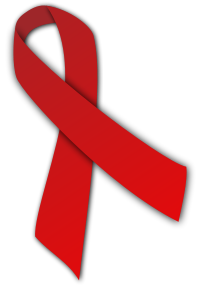
Photo from wikipedia
Objectives We examined determinants of achieving blood pressure control in patients with hypertension and of treatment intensification in patients with uncontrolled blood pressure (BP). Design A retrospective cohort study in… Click to show full abstract
Objectives We examined determinants of achieving blood pressure control in patients with hypertension and of treatment intensification in patients with uncontrolled blood pressure (BP). Design A retrospective cohort study in six public hospitals, Ethiopia. Participants Adult ambulatory patients with hypertension and with at least one previously prescribed antihypertensive medication in the study hospital. Outcome Controlled BP (<140/90 mm Hg) and treatment intensification of patients with uncontrolled BP. Results The study population comprised 897 patients. Their mean age was 57 (SD 14) years, 63% were females, and 35% had one or more cardiometabolic comorbidities mainly diabetes mellitus. BP was controlled in 37% of patients. Treatment was intensified for 23% patients with uncontrolled BP. In multivariable (logistic regression) analysis, determinants positively associated with controlled BP were treatment at general hospitals (OR 1.89, 95% CI 1.26 to 2.83) compared with specialised hospitals and longer treatment duration (OR 1.04, 95% CI 1.01 to 1.06). Negatively associated determinants were previously uncontrolled BP (OR 0.30, 95% CI 0.21 to 0.43), treatment regimens with diuretics (OR 0.68, 95% CI 0.50 to 0.94) and age (OR 0.99, 95% CI 0.98 to 1.00). The only significant—positive—determinant for treatment intensification was duration of therapy (OR 1.05, 95% CI 1.02 to 1.09). Conclusions The level of controlled BP and treatment intensification practice in this study was low. The findings suggest the need for in-depth understanding and interventions of the identified determinants such as uncontrolled BP on consecutive visits, older age and type of hospital.
Journal Title: BMJ Open
Year Published: 2017
Link to full text (if available)
Share on Social Media: Sign Up to like & get
recommendations!